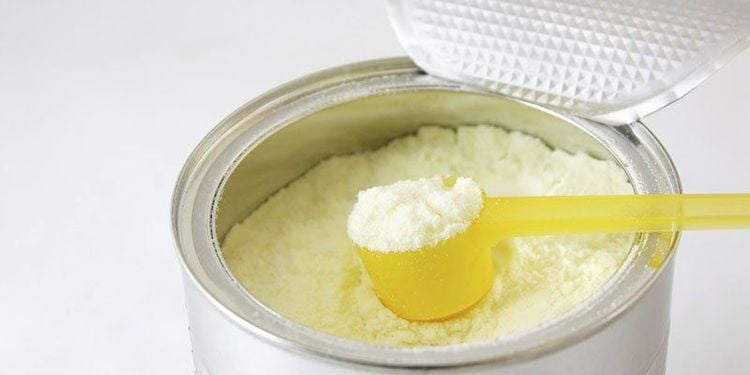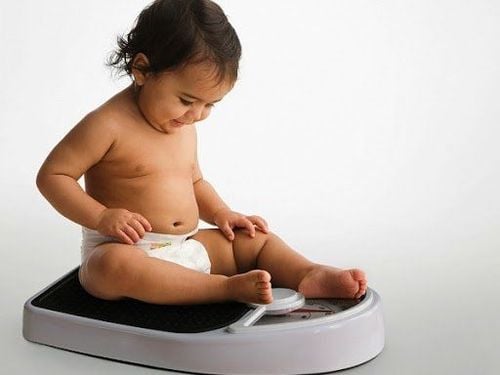Infants and young children often cannot communicate how they feel, but their stool can reveal many issues. Therefore, signs such as the baby passing frothy stool often worry parents. The phenomenon of a baby passing frothy stool is quite common in babies from 0 to 36 months old. So, is it normal for a baby to pass mucous, frothy stool?
1. Is it normal for a baby to pass frothy stool?
Normally, a breastfed baby may pass stool 5–7 times a day. The stool of a breastfed baby typically has a soft texture and a natural yellow color, which can sometimes lead parents to mistakenly think their baby has diarrhea.
Babies with diarrhea will pass stool more than 10 times a day, and the stool will be liquid and frothy. Additionally, the baby may show other symptoms such as excessive crying, fatigue, and refusal to feed.
Most cases of frothy stool occur in babies aged 0 to about 36 months. The main reason is that the digestive system is still underdeveloped, and the baby’s immune system is weak. If the baby passes frothy stool for a prolonged period and shows other symptoms, parents should promptly take the child to the hospital for diagnosis and timely treatment to avoid serious complications.
In some cases, even though the baby is passing frothy stool, if the stool frequency hasn't changed, the stool doesn't show any abnormal characteristics, and the baby continues to feed and sleep well without excessive crying, parents can rest assured and continue to monitor, as this condition may resolve after a few days.
In addition to underdeveloped digestive systems, babies passing mucous, frothy stool who also cry excessively, experience weight loss, or have other concerns may have an intestinal bacterial imbalance, digestive disorders, or gastrointestinal infections. In this case, the stool may have the following characteristics:
- Dark green stool, small amount, mixed with mucus.
- Stool may be hard, covered with mucus or blood, suggesting constipation.
- Stool resembling curdled milk, green, and mixed with mucus, indicating gastrointestinal infection.
2. Some causes of frothy stool in babies
In addition to digestive issues, several other causes can lead to a baby passing frothy stool:
2.1. Use of formula milk
There are many types of formula milk available today, with diverse active ingredients suited to different babies. Formula milk is convenient and can supplement nutrition when breast milk is insufficient.
However, depending on the baby's constitution, some formula milks may not be suitable. Many formulas contain lactose, an active ingredient that can be sensitive to both adults and infants. Babies who are allergic or intolerant to lactose in formula may easily develop diarrhea, especially with a high likelihood of passing frothy stool.

2.2. Transitioning to solid food
Babies older than 6 months start transitioning to solid foods like porridge, mashed vegetables, etc. This new introduction can cause frothy stool during the initial period. Research has shown that since the baby’s digestive system is used to only breast milk or formula, introducing solid foods can cause a reaction, leading to frothy stool.
However, parents can be reassured because this reaction is natural, completely normal, and will pass after some time. Parents should check the foods and preparation methods to ensure food safety, minimizing any abnormalities that might cause mucous, frothy stool.
3. Is frothy stool dangerous in babies?
The occurrence of frothy stool in babies is quite common in our country, and the possibility of treatment is also relatively easy. However, if parents lack proper knowledge of baby care or fail to monitor closely to detect and treat acute diseases causing frothy stool, serious complications can arise.
If the baby continues to pass frothy stool for a long period, it can lead to fatigue, rapid dehydration, and dangerous complications such as respiratory failure or organ failure. Conditions causing this need to be diagnosed early and treated promptly. Therefore, parents need to monitor and take the baby to the hospital immediately if any unusual signs appear.
4. What should you do when your baby passes frothy stool?
If the baby passes frothy stool but shows no other signs like excessive crying or refusal to feed, parents do not need to worry too much. The important step is to review the foods that the mother or the baby has consumed and make adjustments accordingly. It is recommended to limit fatty, hard-to-digest, spicy, or heavily seasoned foods.
If the baby passes mucous, frothy stool, has loose stool for an extended period, and shows signs like excessive crying, refusal to eat, poor weight gain, or even weight loss, it could be due to digestive disorders, intestinal infections, etc. In this case, parents should take the baby to a healthcare facility as soon as possible for diagnosis, to find the cause, and to get appropriate treatment.
Parents should avoid giving the child any medication or attempting home remedies without a doctor's prescription to prevent worsening the condition.
Additionally, frothy stool with a small amount of mucus could be caused by an unsuitable formula or lactose intolerance. Parents should stop the formula and monitor the baby’s condition.

5. How to prevent frothy stool in babies?
5.1. Ensure all baby items are clean
An essential measure to reduce frothy stool is to ensure that all items the baby uses, such as bottles, pacifiers, or toys, are thoroughly cleaned. This helps minimize the risk of harmful bacteria entering the body through the digestive and respiratory systems. Sanitizing methods can include boiling water or using a specialized sterilizer.
Items like toys or stuffed animals that the baby comes into daily contact with should be washed frequently, at least 2-3 times a week. Additionally, family members who come into direct contact with the baby should wash their hands frequently or use antibacterial hand sanitizer.
5.2. Pay attention to the mother’s diet
The mother’s diet directly affects the quality of breast milk that the baby consumes. If the mother regularly eats fried, fatty, or spicy foods or lacks necessary nutrients, it could lead to the baby passing mucous, frothy stool after breastfeeding.
Also, the initial breast milk is more watery and has fewer nutrients, so when the baby feeds, it may result in loose stool. Therefore, mothers should discard the first milk and allow the baby to consume the richer milk to ensure better nutrition and avoid digestive issues.
5.3. Supplement nutrients for the baby
For babies starting solid foods, parents should ensure the baby’s diet is balanced with fresh fruits and vegetables to boost their immune system. A well-balanced diet can help improve digestion, strengthen the baby’s resistance, and reduce the chances of digestive problems. Additionally, parents should be mindful of food allergies to prevent digestive disruptions in young children.
Babies should also receive essential micronutrients such as Zinc, Selenium, Chromium, Vitamins B1 and B6, Ginger, and Cherry fruit extract (Vitamin C) to improve appetite, growth, and immunity, as well as to reduce digestive issues.













